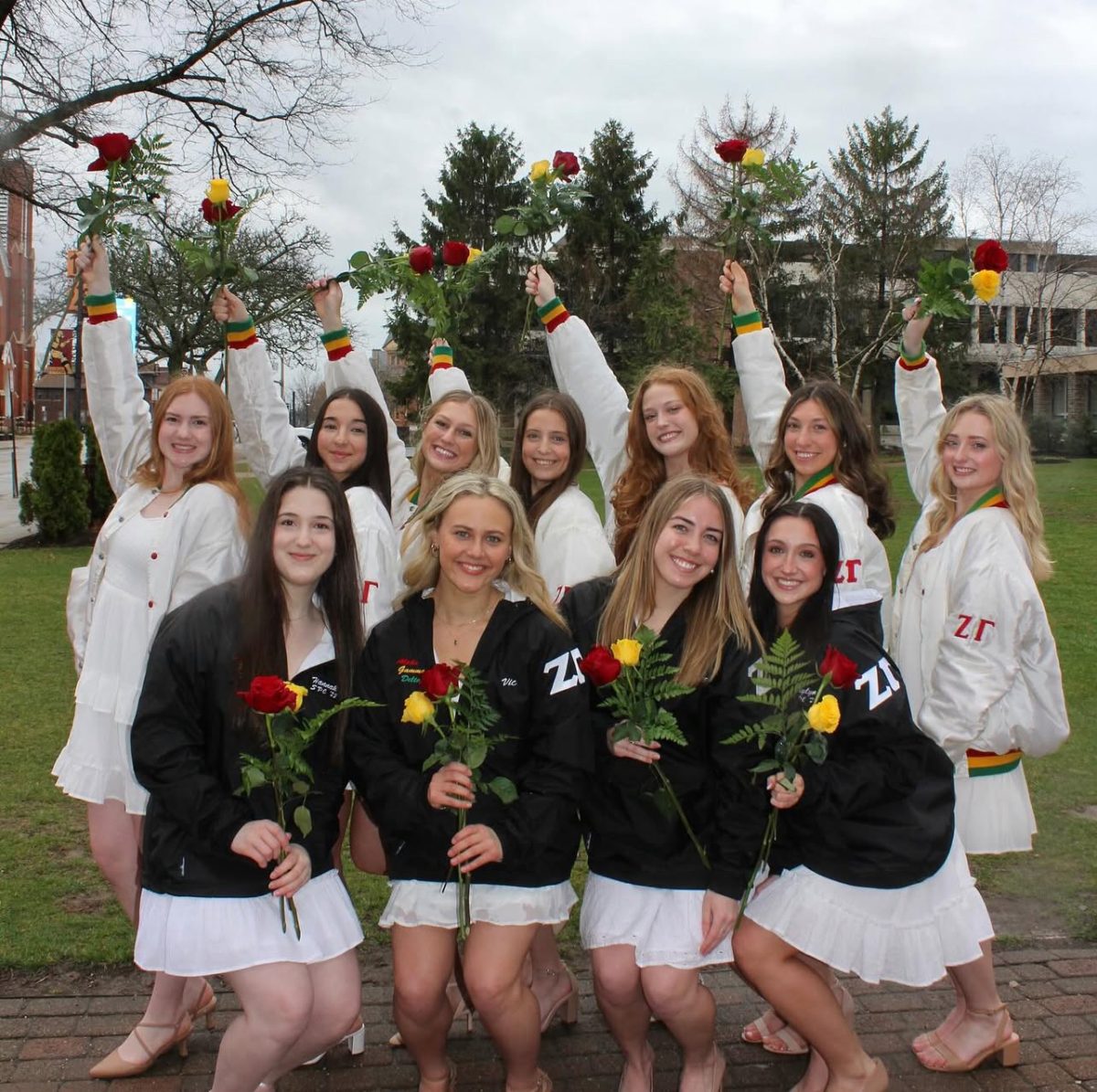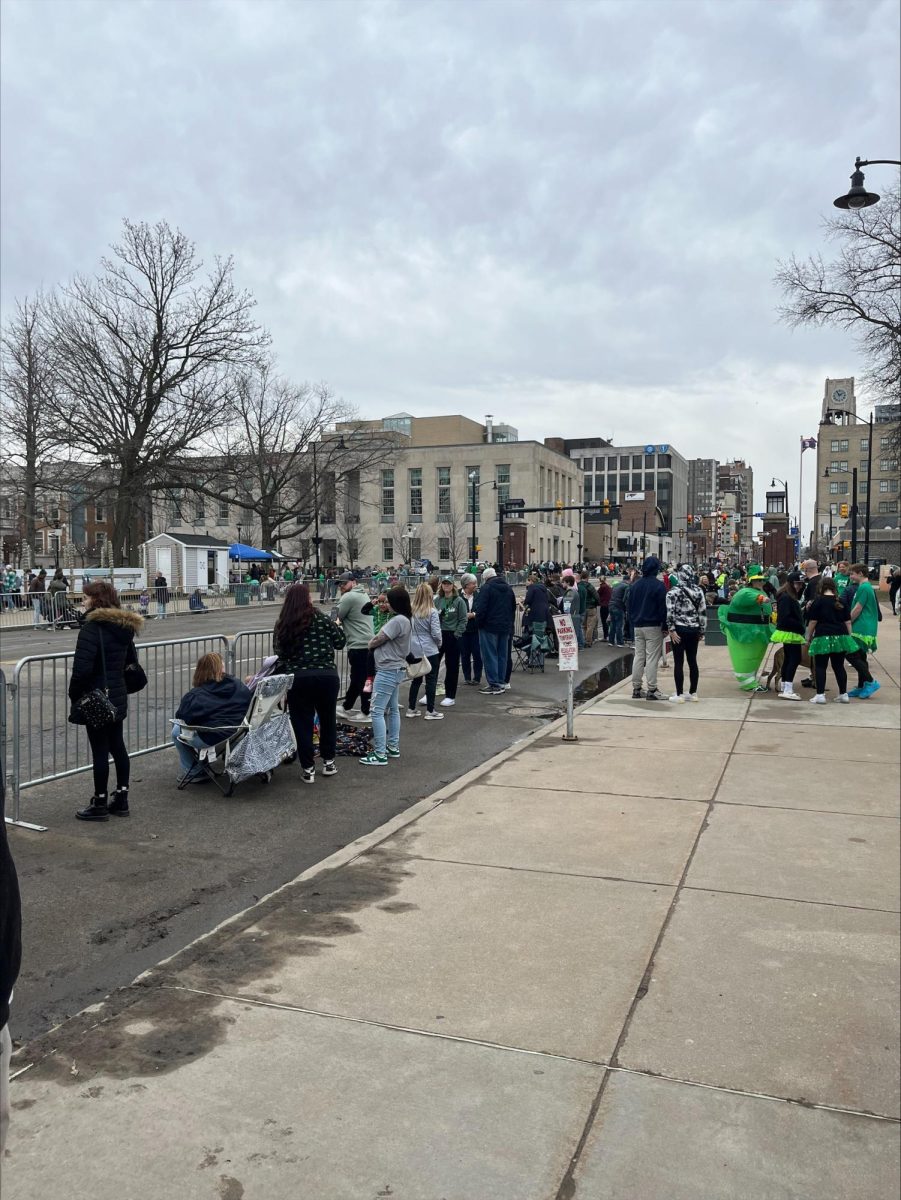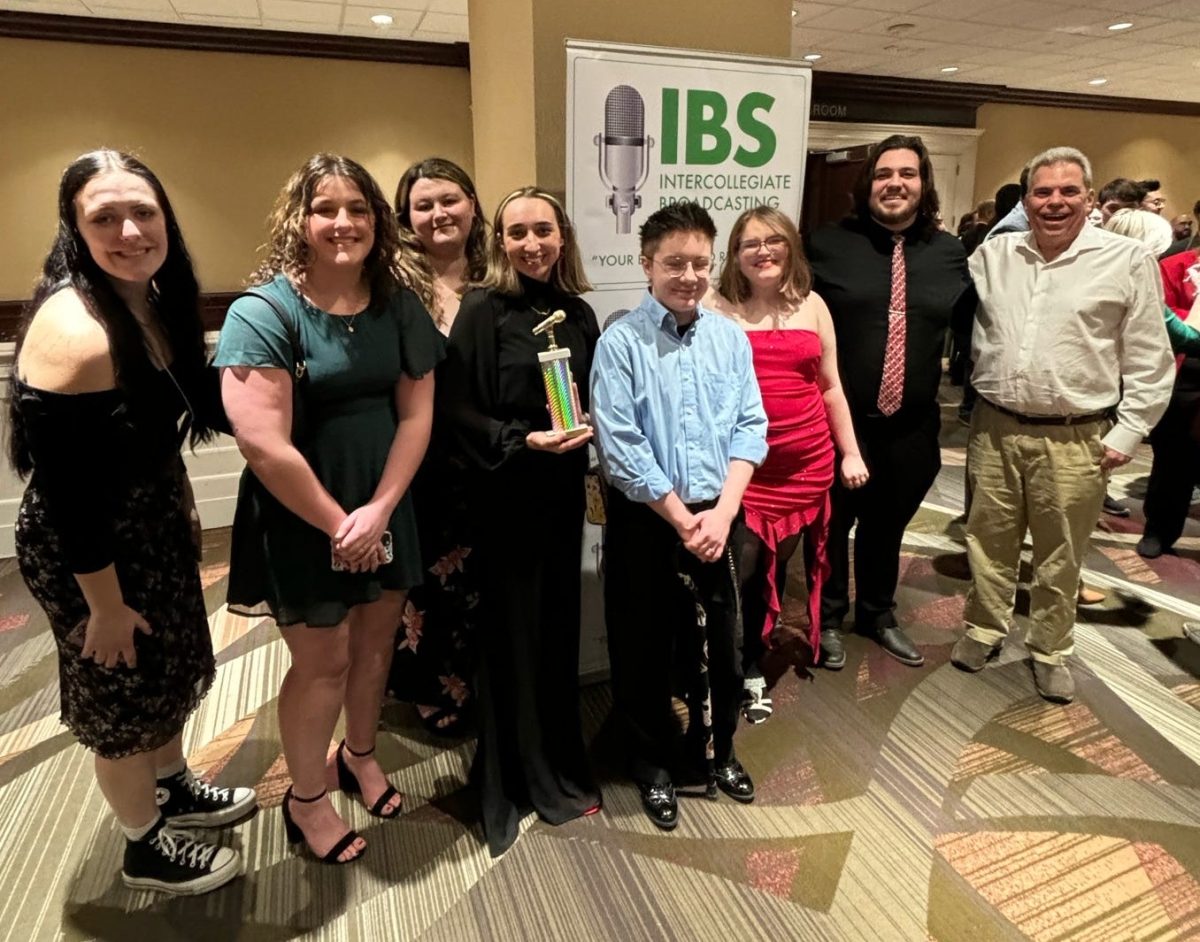Crime on Gannon University’s campus has risen for the last three years as data indicates an 8-percent increase in crimes from 2010 to 2011 and a 4-percent increase from 2011 to 2012.
The information, provided by Gannon’s Campus Police and Safety, shows that in 2012, 50 offenses were reported around campus – two more than 2011’s 48 offenses.
Of the 50 reported in 2012, 36 of the offenses were larcenies, six of which were cleared completely or by arrest; eight were simple assaults, six of which were cleared completely or by arrest; five were burglaries that haven’t been cleared and one was a motor vehicle theft, in which either an arrest or a clearance has been made.
Reports from the U.S. Department of Education calculate the “burglary rate” by dividing the number of burglaries by the instittution’s total enrollment. The report shows Edinboro University with the highest 2011 burglary rate among four-year universities in Erie County with a rate reaching 0.2 percent, followed by Pennsylvania State University-Behrend Campus and Mercyhurst University. Gannon and Allegheny College are tied for fourth place with a 0.14 percent rate.
Numbers aside, talk about safety surrounds the Gannon community with both recent and old incidents around campus, as well as the pressing media coverage on the issue.
Many students are tiptoeing their way around buildings hoping to stay safe, including Jenna Matis, a senior chemistry major.
“I don’t feel safe walking around campus, especially at night and around Third Street,” Matis said.
However, Ted Marnen, director of Campus Police and Safety, said the Gannon department has been implementing many measures and providing students with necessary sources to feel safer on campus.
Marnen said in an effort to make students feel more secure, the department dispatches frequent and daily patrols through campus throughout the day, provides students with walking companions through the Gannon University Escort Service Team and with transportation through the Knight Rider, which covers north to south between Fourth and Ninth streets and west to east between Chestnut and Peach streets.
“We’re seeing more usage,” Marnen said. “It goes in streaks – people tend to use them more when there’s a high-profile incident.
“And then as they get comfortable again when nothing is going on, they stop using them as much. It’s just human nature.”
Abrar Rahman, a sophomore pre-med major, said the patrols need to increase their presence on campus because he was nearly mugged while walking one night.
“I would like it if campus police did more rounds, particularly in the areas between Sassafras and Myrtle streets,” he said.
In addition to the safety personnel on campus, Marnen said the campus is equipped with 420 cameras placed in the hallways, near entrances and exits and around fire escape exits inside on-campus buildings and housing units. Two cameras are positioned on A.J.’s Way as well.
Rahman, however, said while he feels the university is mostly safe, necessary adjustments should be made soon.
“I would like it if we had more reasonable emergency boxes placed around campus, because sometimes they are not even online,” Rahman said. “The elevators’ emergency systems also need to be fixed because every time I get stuck in an elevator I don’t get any assistance.”
In addition to Gannon’s own provided safety measures, Marnen said the department works hand in hand with the Erie Police Department to resolve issues that happen around the Gannon community.
Marnen said EPD is supposed to notify Gannon Police about any incidents that are reported on a Gannon housing unit. However, delays in notification happen at times when the EPD does not realize it’s being called to Gannon-owned buildings.
“We try to monitor their calls pertaining to Gannon-owned buildings,” Marnen said. “In an effort to clarify things, I have sent them a list of Gannon-owned properties so when they get a call they know immediately to contact us.”
Members of the faculty differ on their view of Gannon’s current safety measurements.
Christopher Magno, Ph.D., director of the criminal justice program, said he felt Gannon was a safe place, as no major incidents have taken place on campus.
Magno and several students, including sophomore theology major Jared Schaaf,. said they felt campus was safer after the lights were installed on campus.
“My on-campus residence is connected to an off-campus residence and I think the university does an amazing job in keeping me safe with neighbors that I am not familiar with,” Schaaf said.
“Before the new lights were added, I felt a little bit of insecurity when I was walking home back from the gym at night but now that the lights are added I feel a lot better about it.”
Matis also said the lights have made a difference in regard to her sense of safety at the university.
Magno said that faculty members have suggested increasing the number of security cameras to monitor strange behavior at Gannon, an idea Magno said won’t settle well with students.
“They don’t want a campus that is being run like a prison with guards and cameras spread around,” Magno said. “For them, it’s too much monitoring and it will limit their movements.”
He also said that the people’s notion of safety is influenced by and heightened because of the events published in the news.
“Safety is a really broad idea,” Magno said. “Sometimes we define it according to what type of crime the media feed us.
“We don’t think about safety and danger before an incident happens, but we start thinking about it because of the news and the terrible incident that happened somewhere else, like in Newtown.”
Ellie Walsh, Ph.D., an assistant professor of history, said her sense of safety was indeed heightened by the shootings that happened in Newton.
“I have thought about [campus safety] a lot,” Walsh said. “It’s hard not to think about it given, sadly, how frequently this is happening, and especially with the recent Newton tragedy.”
Walsh said that although she feels generally safe on campus in terms of assaults and robberies, she had her concerns about Gannon’s safety protocols and measures regarding serious incidents that may occur on campus.
“I don’t feel that I have been adequately trained to deal with an emergency situation such as a shooter,” Walsh said. “I can’t even lock my class door. So the first line of defense is not there.”
Walsh said while measures like the Emergency Alert System the university has in place is operating, it’s ineffective in a classroom where phones are prohibited.
Furthermore, Walsh said the university’s protocols about safety – most recently published in a booklet sent to faculty – are not proactive or sufficient to protect students and faculty against danger, and that training and drills will be the most effective way of restoring a sense of safety on campus.
“Reading about it is very different than performing it and acting it,” Walsh said. “The first thing people know about emergencies is that you have a plan and that you have to practice it so that it’s automatic and you don’t have to start thinking about it on the spot.”
Marnen said the department was planning to hold safety discussions with faculty around campus.
“We are enhancing our current safety protocols,” Marnen said. “My target audience is the faculty, because if we look back to all the national incidents that went around schools specifically, the faculty was the first to react to it.”
Walsh said that in addition to moral issues involved in proactive safety measures on campus, the university could also face serious liability issues.
Another concern Walsh expressed was the safety of female students in on- and off-campus gatherings and parties.
Unfortunately, crimes of a sexual nature have inched their way into the Gannon community. Reports show that two forcible rapes were reported to Gannon’s Police and Safety in 2011.
Victims of serious crimes, like rape or sexual assaults, are always referred to a counselor, so they can at least feel safe and more comfortable.
“When I have a victim here, I make sure that they have somebody so they can associate a face to comfort,” Marnen said. “Instead of calling someone they don’t know, this makes them more comfortable and safe.
“Of course, it’s the victim’s choice to take advantage of the counseling services, but they’re always referred there.”
Marnen said being on a campus located downtown like Gannon’s poses as both a strength and a weakness to the university.
The location of the campus allows the students to walk to nearby social work or law enforcement agencies like The Erie County Courthouse, Marnen said, which gives them real learning experiences relevant to their majors.
Additionally, Marnen said the location of the campus stimulates students’ social lives by providing gathering and entertainment venues like the Erie Insurance Arena and the Warner Theatre, as well as restaurants and nightlife reserved for the older students.
“Interaction is there; they’re also facing the reality of life,” Marnen said. “This is a strength and a weakness as they see real people and not in an isolated campus.
“There are pluses and minuses – it depends on how you want to look at it, but they get to learn from the real world.”






